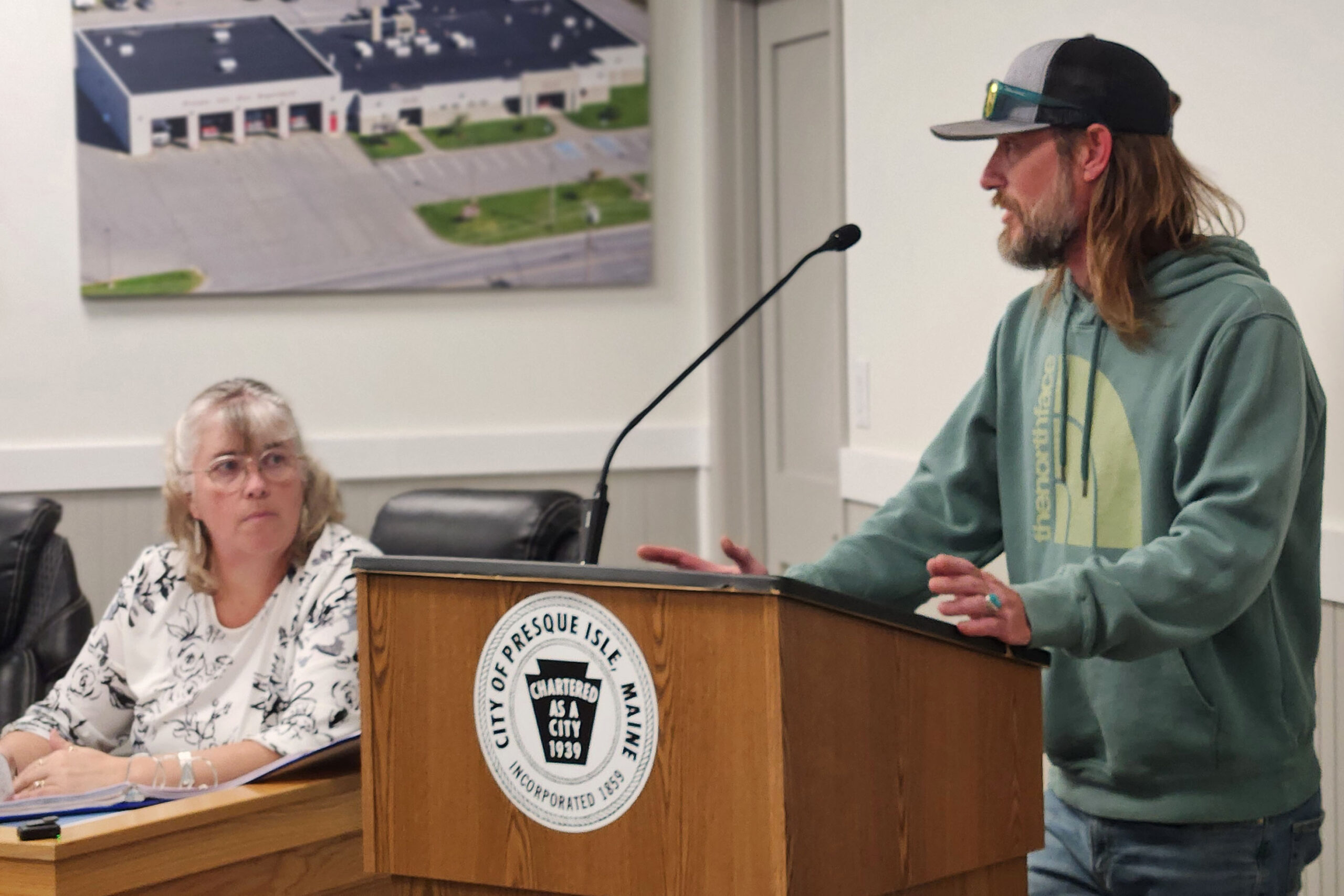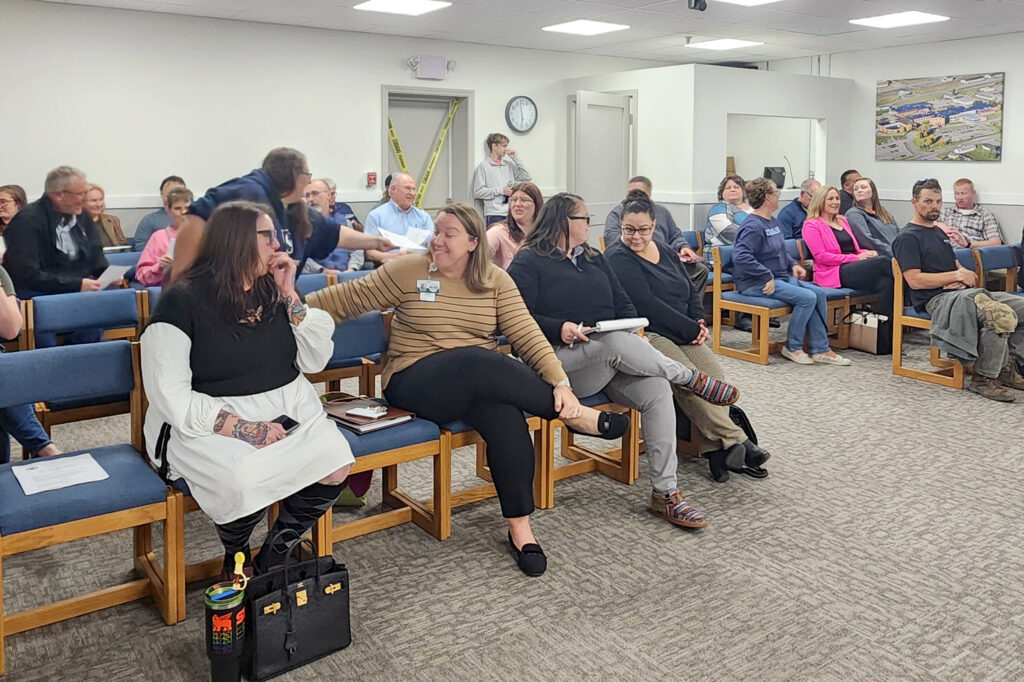
Presque Isle leaders backed off Wednesday on a proposed ordinance to control camping on public property.
City councilors voted to table the ordinance indefinitely after a public hearing that packed council chambers and a nearby room.
The ordinance was introduced in June after the city received complaints from residents about people camping in public spaces. Controversy followed as other residents and social service officials said it would unfairly target those who are homeless. City leaders reworked the document to emphasize services and giving people more time to vacate, but speakers at the hearing said it still painted the unhoused as criminals.
“If they don’t have the resources now, are they going to have the resources in 30 days?” said Christopher Tutt. “There’s a human side to this. You know, it takes a village to raise a human, and I think we need to act [like] the village and lift people up.”
As a parent, Tutt is concerned about alcohol and drug use he sees in some public places, and the city should criminalize and enforce that behavior. But imposing warnings, fines or court appearances on people who have nothing will take city resources away from more important elements, like solving the housing shortage, he said.
The ordinance unfairly paints all people without homes with the same brush, and people face homelessness because of many different circumstances, said Heidi Rackliffe, program director at Aroostook County Action Program in Presque Isle.

The agency recently opened supportive housing center Norman Fournier Place, and 12 of its 13 units are full, she said. Half of the tenants are employed but were previously unable to find affordable housing.
“I’m sure many of you have seen several of the tenants living outside our building,” she said. “They’re in our housing now. This is the population that this ordinance would have affected.”
The ordinance would only help a minority of people who are homeless, who simply have no place to go, she said. Social service agencies don’t have the funding now to help everyone in need, and people the rules target would likely wind up sleeping in police stations and emergency rooms.
Presque Isle already has an ordinance to restrict camping in city parks, resident Meg Hegemann said in a written comment. The proposed camping ordinance gives the impression that people without traditional housing are a danger to the public, and adds an unnecessary burden to law enforcement.
“Law enforcement and social service agencies already do a tremendous job working together to serve our community,” Hegemann wrote. “This ordinance is simply not necessary and I encourage the council to reject it.”
Presque Isle’s Ordinance Regulating Conduct in Public Parks, Recreation Areas and Facilities refers to camping, stating: “No person shall set up tents, shacks, or any other temporary shelter for the purpose of overnight camping, nor shall any person leave in a park after closing hours, any moveable structures or special vehicle that could be used for such purposes such as a house trailer, camp trailer, tent or the like.”
City leaders want to ensure the unhoused receive shelter, substance use treatment and any other services they need while making sure public spaces are safe and accessible for everyone, according to the new draft ordinance.
The revised guidelines said people camping must not restrict crosswalks or pedestrian paths, leave garbage behind, damage trees or the environment, start fires at their camp sites, dump anything in a waterway or erect permanent structures. Tents are not considered permanent structures, according to the ordinance.
The revised document no longer said campers must have written permission from the city council, city manager or code enforcement officer. Language restricting loitering, day camping, tailgating or sunbathing was also removed.
The document was generated when people expressed concern about public camping, but ultimately, the opposition voiced during the hearing showed it simply isn’t the right solution for people living outside, and the council should table the ordinance indefinitely, Councilor Craig Green said.
“I don’t think, as it sets, that it’s something that any of us have a desire to enact,” he said. “But I do think it’s something that started a conversation that we can take into the future.”
The ordinance wasn’t crafted to criminalize or penalize people, but was intended to respond to community concerns, Councilor Jeff Willette said. More work needs to be done on it, and the council and anyone who’s interested can work on a better solution.
If the ordinance is tabled, time could minimize its importance, Council Chair Kevin Freeman said.
“I appreciate your sentiments, but I think we’ve got a roomful of people that are ready to tackle this,” Councilor Hank King said. “And rather than, I guess, just mouth service, we need to follow through and we need to get these services and we need to get this taken care of.”
Councilors voted 4 to 2 to table the camping ordinance, with Freeman and Willette voting no.
Plans for further work were not discussed.






